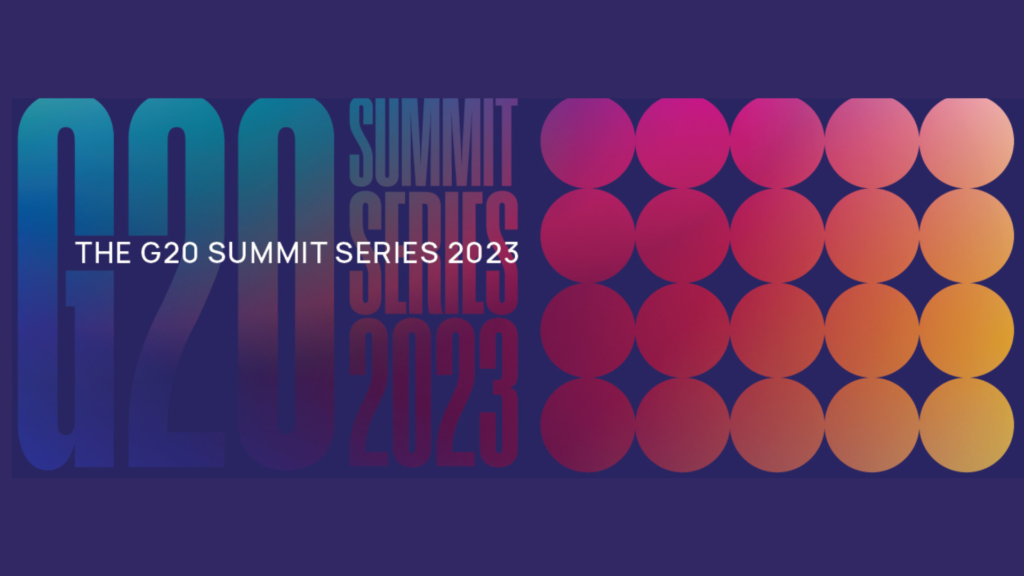Date And Time – 27th April, 2023 | 5:15 PM – 6:30 PM
Venue – WWF India Auditorium
The G20 member countries have agreed to support India’s proposal on developing a pathway for the reform of multilateral development banks (MDBs), such as the World Bank. The idea is to reform MDBs and make them far more flexible to meet 21st century challenges and the development needs of the current world. Hence this discussion will focus on how multilateral development banks could take on a revamp and lift individuals out of acute deprivation.
Moderator
Speakers
Dr Rakesh Mohan, President and Distinguished Fellow of the Centre for Social and Economic Progress (CSEP)
Rakesh Mohan is President and Distinguished Fellow of the Centre for Social and Economic Progress (CSEP), New Delhi, India, formerly Brookings India. He is also a Member of the Economic Advisory Council to the Prime Minister. Dr Rakesh Mohan was Senior Fellow in the Jackson Institute for Global Affairs, Yale University and was earlier Professor in the Practice of International Economics and Finance at the School of Management at Yale University, 2010-12. He has also served as Distinguished Consulting Professor at Stanford University in 2009.
He was closely associated with the Indian economic reforms process from the late 1980s onwards. He was Executive Director on the Board of the International Monetary Fund, Deputy Governor of the Reserve Bank of India, Secretary, Economic Affairs, and Chief Economic Adviser of the Indian Ministry of Finance, and Economic Adviser in the Ministry of Industry.
He was also Chairman of Government committees that produced influential reports on infrastructure: The India Infrastructure Report (1996), The Indian Railways Report (2001) and The India Transport Report (2014).
After the North Atlantic Financial Crisis, he co-chaired the G20 Working Group “Enhancing Sound Regulation and Strengthening Transparency” (2009), and the CGFS/BIS Working Group on “Capital Flows and Emerging Market Economies” (2009)
He has authored three books on urban economics and urban development; two on monetary policy: ‘Monetary Policy in a Globalized Economy: A Practitioner’s View’ (2009), and “Growth with Financial Stability: Central Banking in an Emerging Market”. His most recent book (edited) is “India Transformed: 25 Years of Economic Reforms”
He has a BSc (Eng.) from Imperial College of Science and Technology, University of London (1969), a BA from Yale University (1971) and an MA and Ph.D. in economics from Princeton University

Mr N K Singh, Chairman, 15th Finance Commission of India and Trustee, Ananta Aspen Centre
Mr. N.K. Singh is a prominent Indian economist, academician, and policymaker. He is currently the Co-Convenor of the High Level Expert Group for the reforms of Multilateral Development Banks formed by the G20, the President of the Institute of Economic Growth and Chairman of the 15th Finance Commission. Prior to this position, he presided as Chairman of the Fiscal Responsibility and Budget Management Review Committee (FRBM). He also served as a member of the Upper House of the Parliament, the Rajya Sabha, from 2008 to 2014, during which time he contributed to several prominent Parliamentary Standing Committees including the Public Accounts Committee, the Committee on Foreign Affairs, and the Committee on Human Resource Development.
Mr. Singh had a long and distinguished career as a member of the Indian Administrative Services before his entry into politics and fiscal policy leadership. He served as Expenditure Secretary (1995-1996), Revenue Secretary (1996-1998) and Secretary to the Prime Minister of India (1998-2001), among other senior leadership roles. He was part of the core group of advisors and strategists during India’s economic reforms of 1991 where he was principal interlocutor for negotiations with the World Bank and the International Monetary Fund (IMF). Mr. Singh brings a wealth of national and international experience to the table, having interacted closely with multilateral organizations such as the World Bank, IMF, ADB, and OECD.
His early work as First Minister, Economic and Commercial, Indian Embassy, Japan (1981–85) and subsequent contributions to the international economic order were recognized by the Emperor of Japan with the award of the “Order of the Rising Sun – Gold and Silver” in 2016. The Japanese order is the second-highest civilian award accorded to people with distinguished achievements in the field of international relations, promotion of Japanese culture, development in welfare or preservation of the environment. He was the only Indian in the list of recipients of 2016 Spring Imperial Decorations. Mr Singh is also a published author with several prominent books to his name. He has been a reputed columnist in leading Indian newspapers including the likes of Hindustan Times, Hindustan, The Indian Express, The Hindu, and Mint.

Dr Poonam Gupta, Director General, National Council of Applied Economic Research
Poonam Gupta is the Director General of NCAER, and a member of the Economic Advisory Council to the Prime Minister. She specialises in Macroeconomics, and issues related to the Emerging Market Economies. Before joining NCAER, Dr Gupta was the Lead Economist for Global Macro and Market Research at the International Finance Corporation and led the policy research work on India at the World Bank. Prior to that, she was the Reserve Bank of India Chair Professor at the National Institute of Public Finance and Policy; Professor at the Delhi School of Economics; and Researcher at the International Monetary Fund. Her research has been published and cited widely in scholarly journals and has also featured in leading international business dailies such as The Economist, Financial Times, and The Wall Street Journal. She is currently a member of various organizations, including the Development Evaluation Advisory Committee, NITI Aayog; Board of the Global Development Network; National Executive Committee, Federation of Indian Chambers of Commerce and Industry; and Governing Body, National Institute of Public Finance and Policy. Dr Gupta holds a PhD in Economics from the University of Maryland, USA, and a Master’s in Economics from the Delhi School of Economics




























